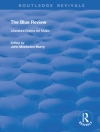The Possessed, by
Fyodor Dostoevsky , is part of the
Barnes & Noble Classics
series, which offers quality editions at affordable prices to the student and the general reader, including new scholarship, thoughtful design, and pages of carefully crafted extras. Here are some of the remarkable features of
Barnes & Noble Classics:
- New introductions commissioned from todays top writers and scholars
- Biographies of the authors
- Chronologies of contemporary historical, biographical, and cultural events
- Footnotes and endnotes
- Selective discussions of imitations, parodies, poems, books, plays, paintings, operas, statuary, and films inspired by the work
- Comments by other famous authors
- Study questions to challenge the readers viewpoints and expectations
- Bibliographies for further reading
- Indices & Glossaries, when appropriate
Barnes & Noble Classics pulls together a constellation of influences—biographical, historical, and literary—to enrich each readers understanding of these enduring works.
Famous for accurately predicting twentieth-century totalitarianism, Dostoevsky ’s The Possessed is an emphatic howl of protest against the fervor of revolution and terrorism that gripped Russia toward the end of the nineteenth century.
Based on a true event, in which a young revolutionary was murdered by his comrades, The Possessed provoked a storm of controversy for its harsh depiction of a ruthless band of Russian intellectuals, atheists, socialists, anarchists, and other radicals who attempt to incite the population of a small provincial town to revolt against the government. In contrast to Dostoevsky’s savage portrait of these radicals and the violent ideas that have possessed them like demons, the author expresses great sympathy for workers and other ordinary people ill-served by those who presume to speak in their name.
Often regarded as the greatest political novel ever written, The Possessed showcases Dostoevsky’s genius for characterization, his amazing insight into the human heart, and his shattering criticism of the desire to sway and control the thought and behavior of others.
Elizabeth Dalton is Professor of English and Comparative Literature at Barnard College. She is the author of Unconscious Structure in The Idiot, a psychoanalytic study of Dostoevsky’s novel.












